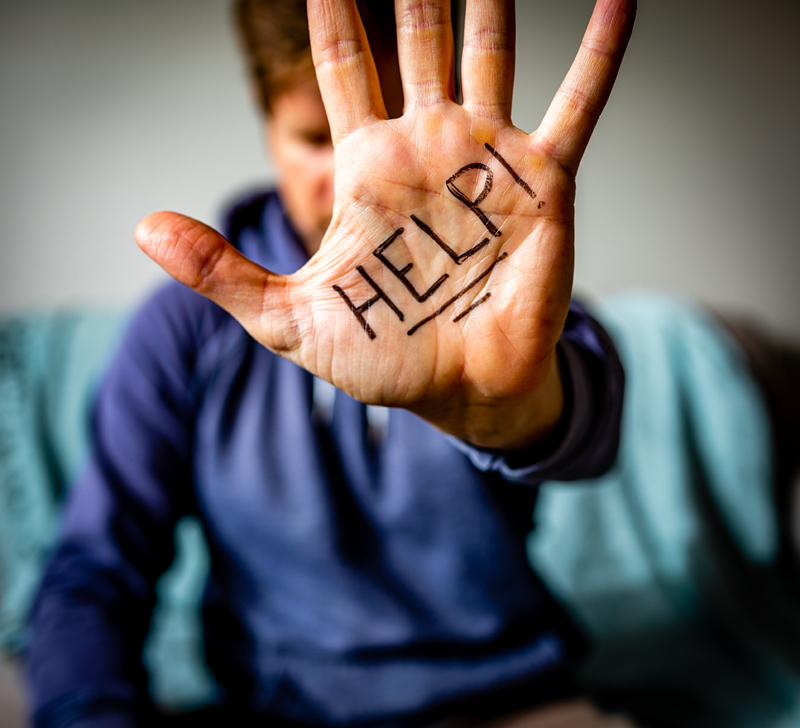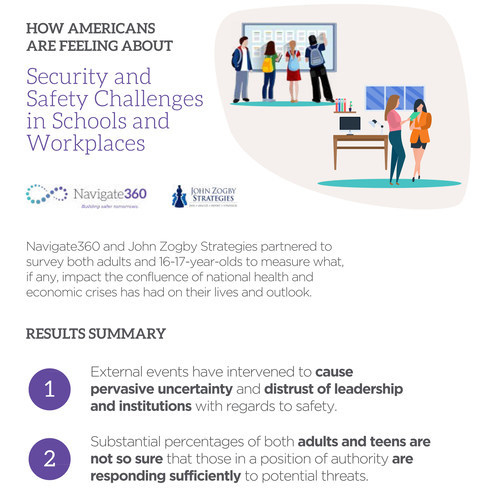
Mental Wellbeing Issues Emerge as a Major Side-Effect of COVID-19
One of the questions I’m frequently asked is, “When will the economy bounce back to pre-COVID levels so we can all get back to normal?” The answer: We won’t “bounce back” to a pre-pandemic economy, and “normal” won’t be the same. The details on this answer is a topic for another post, but suffice it to say that one of the reasons is due to emerging, unforeseen variables, such as deteriorating employee mental wellbeing issues.
And THAT IS the topic of this post. Two new surveys provide troubling but important data that will impact how – or if – you re-centralize your team…if that’s your plan.
See new data on your team’s mental wellness…
There has been a continual stream of polls seeking to try and improve our understanding on how consumers feel about this COVID-19 generated “new normal.” Those polls have updated so rapidly, I haven’t even had time to write them up for your edification.
But two new polls caught my eye this week…and I want to share them with you. Both of them, I suspect, may help you better understand just how severely the mental well-being of you and your team have been affected by this strange new world in which we find ourselves. Smart business owners and top company managers, will need to give some serious consideration as to the state of their employees feelings.
Pandemic Side-Effect, Declining Mental Wellbeing
Let me start by throwing a couple of headlines from the studies at you: New Poll Shows More than 70% of Americans Feel Safe Only at Home; and, 75% of American Employees Say they Have Struggled with Anxiety Caused by COVID-19 and Other World Events While Working From Home. Look at those headlines…if they don’t concern you, they should.
These studies present a shocking reality that suggest those of us at the helm of our organizations – any size organization – have a new consideration as we seek to effectively manage our teams…they are hurting. Our anxiety levels, both personal and collective, are at all time highs. Whether at the front of your mind (at a conscious level), or in the back of it (at a subconscious level)…the disruption of our normal patterns of activity and the direct interruption of our normal socialization routines has had a major negative impact in just how we feel on a daily basis.
7 out of 10 Americans Only Feel Safe at Home
The first study found that 7 out of 10 (70%) Americans said that they only feel safe at home. Also, a majority of the adult respondents (59%) and teenage respondents (61%) told the pollsters (John Zogby Strategies, in a poll for Navigate360) that they “believe that they or someone close to them are likely to encounter a violent critical incident, experience self-harm, or contract COVID-19 or another contagious disease.”

Respondents further told pollsters that they no longer assume that work, school, or other public places are safe. Navigate360 (a safety preparedness firm) and their pollsters actually conducted multiple polls to try and get a handle on the mental and physical safety and wellbeing of the typical American. What did they find? “The results revealed a great sense of uncertainty and a lack of confidence in safety and wellbeing at their respective workplaces or schools.”
Key Findings of Adults & Teens are Concerning; ‘Sad and Stark Results’ a Pollster Found
Specific key findings of this survey that I think you should know:
- 64% of adults age 25-34 believe that contracting COVID-19 could prevent them from fulfilling their life goals in their education or career. A separate survey of teens found a majority of them (54%) agree with this sentiment.
- More than 4 in 10 (41%) said they feel that their workplace is less safe now than it was six months ago.
- A majority of parents (52%) feel that their child’s school is more dangerous now than it was six months ago
- Less than a majority (47%) of adults believe that the leaders at their schools or workplaces are doing their best to create a safe environment for them.
- 54% of adults say that their office “had no plan in place” to deal with the situation
- A majority of all respondents (adult survey & teen survey) felt that leaders in the workplace or schools “didn’t view their safety as a priority”
Perhaps most stunning to me was the finding that even in the teenage survey, fully 70% of teenagers say that “the only place they feel safe is at home.”
I’ve spent more than four decades of my life surveying Americans, and this is one of the more sad and stark results I have ever encountered. It is undoubtedly concerning how many Americans, both adults and students alike, are worried about their futures and distrust the leaders and institutions they interact with most frequently.”
John Zogby, The pollster who conducted these polls
A Wave of Anxiety in the Wake of COVID-19; 75% of Employees Say They are ‘Struggling’ with Anxiety Issues

A separate study on levels of anxiety in America today was conducted on behalf of TELUS International, a global customer experience and digital solutions provider. This study was equally compelling…codifying what I had intuitively felt was a fact – Americans are feeling extremely anxious, due to COVID-19 and other world events.
The study was conducted with 1,000 Americans who have been working from home (WFH or remote) since March 2020. As the headline noted, three out of four employees (75%) say they are struggling with anxiety due to COVID-19 and other world events as they work from home.
80% Would Quit Their Jobs for One More Focused on Their Mental Health
And in a finding that seems to reflect the same sentiment as the other studies reported above, fully 80% of respondents say they would “consider quitting their current position for a job that focused more on employee mental health.”
Other top findings in this survey of remote workers:
- Four out of five respondents said it was hard to “shut off” from their WFH jobs in the evenings
- A majority of respondents say they have not taken a “mental health day” since they began working remotely due to the pandemic
- 97% of those taking the survey said that taking vacation time when working remotely is important to “recharge.” But 44% admit that they have not taken a single day of vacation since they began working from home
- A majority of survey takers (>50%) said that their “sleep patterns have been negatively impacted” since they began working from home. Fully 40% said they “are not getting enough sleep”…and 13% said that they are “hardly sleeping at all.”
- Almost 4 in 10 (39%) report that they are feeling less healthy physically; and 45% said that they feel less healthy mentally since working from home due to COVID-19.
My Employer Doesn’t Care
Like the other survey, this poll found a bit of a lapse in employees’ view of how their employers care about their health – only about 6 in 10 respondents said that their employer “expressed genuine concern about their health” during this time. Yet 97% of respondents – virtually all of them – said it was important that a company “prioritizes its employees’ mental health.”
Its imperative in today’s climate that employers are aware of and consider the difficult truth that many individuals are experiencing mental and physical health issues since they began working from home during the COVID-19 pandemic. Since March, we transitioned the majority of our almost 50,000 global team members from working in our facilities to working from home to protect their health and safety during the pandemic; however, we have not lost sight of continuing to provide the same high level of empathy and concern that are foundational aspects of our caring culture. Our approach has been ,’out of sight top of mind,’ meaning our people leaders have come up with fun and inclusive ways to virtually recognize and reward team members, and have increased the cadence of team and individual touch points to help address the unique challenges they may be facing, both personally and professionally during these times.”
Marilyn Tyfting, Chief corporate officer of TELUS International
Consider These Steps Before Transitioning Employees
I have spoken with several business leaders during the pandemic who told me about their concern for their team members’ mental wellbeing. However, most of these conversations were specifically related to early in the pandemic – say April-June – when there was much confusion, conflicting information, and heightened worry over personal safety. Their team members, these leaders told me, were frightened, sometimes refusing to perform service calls to avoid potential exposure to the coronavirus.
Now much later in October, perhaps you feel those concerns are behind you. While many companies in those early days developed protocols in order to help team members and clients feel safe, you might think your job is done. However, these polls make it clear that is not the case. Really, we’re just getting started to understand the impact the pandemic has had on our employees mental wellbeing.
Consider the following steps to address the mental and physical wellbeing of your teams, enlisting the help of your team leaders in the process.
- Find opportunities to discuss with your teams – either as a group or individually – your honest concern for their wellbeing. Let them know it’s OK to not be OK and ask for help. Be patient…listen…
- Encourage your teams to take time off to “recharge their batteries.” It can be just a day here or there to binge watch a favorite Netflix series for example…or to take a long hike in the country…whatever they enjoy doing. Alternatively, it could be a full vacation. Be proactive in this, remind employees of any earned time-off they have coming to them so they won’t worry about taking a financial hit to get away for a bit. And if they don’t have any time-off earned to use, provide it to them on a company-paid basis anyway – it’s a good investment in their future productivity.
- Remind your teams of their company health plans’ mental health provisions and encourage them to take advantage of these benefits
- Challenge your team leaders include fun activities as part of their normal weekly routines – perhaps a trivia contest, online karaoke contest, or a Friday beer bash over Zoom where everyone can blow off some steam and just chat about personal topics…NOT work.
What’s the bottom line? It’s simply good business to have employees who are happy and healthy both physically and mentally. As we face this unprecedented pandemic with an unforeseen side effect of hurting our teams’ mental wellbeing, good leaders recognize the value of proactively countering these effects.
Find information and tips on how to improve mental wellness here…





Leave a Reply